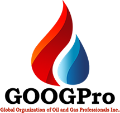In every organization, there are a number of Key Performance Indicators (KPIs) which help to assess its financial health, physical performance, operational excellence and health, safety and environment (HSE).
It is often seen that management develops a series of KPIs for each category and displays it on the management dashboard to assess the health of the organization. The objective of such KPIs is to facilitate appropriate and timely decisions in order to steer the company towards its set objectives. For each category, there could be many KPIs, all of which may be of equal importance. However, if the shareholder or CEO or creditors are interested in one single KPI, which one should be given greater emphasis and why?
Any layman can suggest the main objective of any oil and gas company is to maximize profit while increasing the value of the company year after year. In order to do this, the company must generate more revenue while cutting costs. To achieve this, the company must enhance its oil and gas production year after year. For the sake of discussion, we are assuming that oil prices are to hover around $50/bbls for many years. This would suggest that revenue and profitability hinges on the level of production, while remaining vigilant on cost.
This is to say that a company needs to continually invest its financial resources in exploration and development activities to broaden their portfolio. The greater the proved oil and gas reserves added to the company’s resource base, the greater the value of the company.
Maximizing profit increases the value for shareholders, but oil and gas companies must continue to produce more in succeeding years. The problem with this, however, is that production of oil and gas resources today, means that a barrel of oil produced today will not be a part of the portfolio tomorrow. That is, with the production of each barrel of oil, remaining proved reserves will deplete unless new reserves are added to replenish the quantity produced. This is what is called the Reserves Replacement Ratio, and it is one of the KPIs CEOs and shareholders would be interested in measuring to assess the overall performance of the organization.
If the company were to fail to discover and add new proved reserves, its available resources would eventually be exhausted, leaving the company in a rather difficult position.
This ratio is especially important as it provides a glimpse into the overall health of the company, including how well the company’s upstream operations are performing – are they acquiring enough blocks, acreage, drilling exploratory wells and making enough discoveries? Failure to achieve this single KPI means the company is unable to increase oil and gas production year after year, reflecting negatively in the financial performance of the company’s profit & loss statement.







